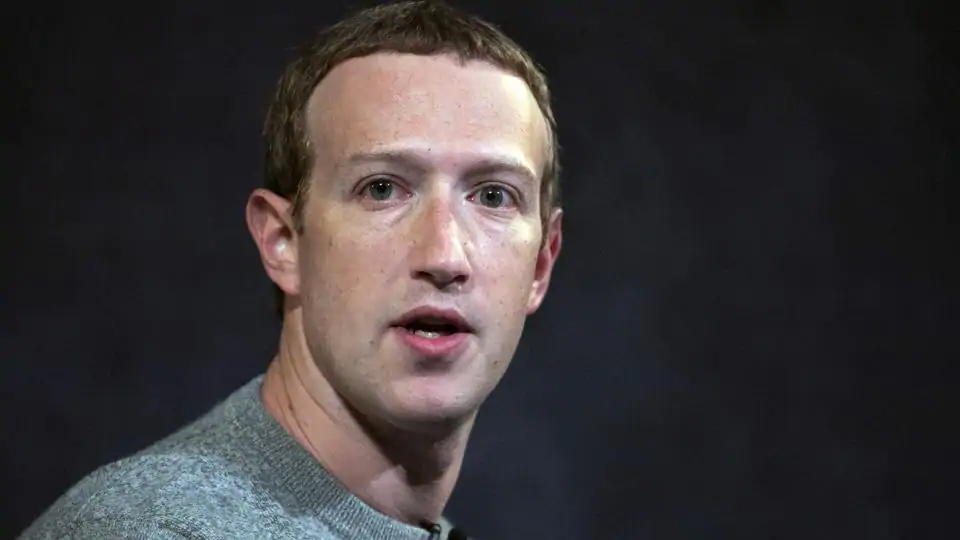Facebook Inc. still doesn’t get it.
A widely anticipated meeting on Tuesday between the social media giant and the civil rights groups behind the recent Facebook ad boycott — including the Anti-Defamation League, NAACP and Color of Change — did not go well. The New York Times reported CEO Mark Zuckerberg and COO Sheryl Sandberg met for about an hour on a video-conference call, but offered little in terms of concessions related to their policies for managing content on their social networks.
A negative response came swiftly. “It was abundantly clear in our meeting today that Mark Zuckerberg and the Facebook team is not yet ready to address the vitriolic hate on their platform,” the groups said in a statement. “Instead of actually responding to the demands of dozens of the platform’s largest advertisers that have joined the #StopHateForProfit ad boycott during the month of July, Facebook wants us to accept the same old rhetoric, repackaged as a fresh response.”
The representatives said Facebook offered to address just one of the groups’ 10 demands — the company was willing to create a position focused on promoting civil rights — but it didn’t promise to do so at the asked-for C-suite level. Otherwise, the company did not give an inch for the other nine demands, according to the groups.
Frankly, Facebook’s inaction is not a surprise. The company has gone to this “hunkering down” playbook many times in the past. The old aphorism that says incentives often drive behavior seems to hold true for this tech giant. And on a pure dollars-and-cents level, the company is incentivized to do as little as possible.
We all know the worst types of content — such as hate speech, misinformation and false conspiracies, along with the outrage surrounding them — tend to be more viral and generate more page-views for social media firms. The upside for Facebook in elevating such engaging content is obvious, but the downside to society as a whole is vast — from mental-health issues to giving rise to scientifically discredited ideas such as the anti-vaxer movement. The brains of millions go down these poisonous rabbit holes.
Given Facebook’s recent stock performance, Zuckerberg may feel even less pressure now. After a brief decline late last month, amid the frantic coverage of advertiser pledges to pull ads from Facebook’s platforms, the shares are now back near all-time highs again. At the end of it all, the boycott was mainly about headline risk, not significant sales risk for Facebook. Last week, I argued Facebook should act on the back of a sea-change in perception and beliefs after the recent wave of protests over racial injustice, adding the true risk for the company was the prospect of future political blow-back, not a near-term revenue hit. That view still stands.The strange thing is, meeting the civil rights groups’ demands isn’t such a big lift for a company with Facebook’s resources. Most of them are simply common sense. Following the meeting Tuesday, the civil rights groups reiterated them. Here’s a brief selection:
Provide audit of and refund to advertisers whose ads were shown next to content that was later removed for violations of terms of service. Isn’t that just good customer service? Wouldn’t that assuage Facebook’s advertisers worried about brand safety placement, giving them confidence Facebook will take content moderation more seriously?
Stop recommending or otherwise amplifying groups or content from groups associated with hate, misinformation or conspiracies to users. Not a big ask.
Enable individuals facing severe hate and harassment to connect with a live Facebook employee. That’s just a question of being willing to spend some money for something worthwhile.
Unfortunately, it looks like Facebook will keep disappointing its critics. Last week, Zuckerberg told his employees that advertisers will eventually return and they will not change their policies under duress, according to The Information. “I tend to think that if someone goes out there and threatens you to do something, that actually kind of puts you in a box where in some ways it’s even harder to do what they want because now it looks like you’re capitulating,” the executive reportedly said.
For now, he may feel a sense of vindication. But instead of focusing on how it looks and establishing bad precedent, perhaps Zuckerberg should instead reassess his thinking and come to terms to this reality: The moral fabric of our society is fraying amid the disinformation propagated on his platform.
There may be a ray of light, however, small. Facebook said it will release its independent civil rights audit report on Wednesday after a two-year review of its policies and practices. Sandberg explained in a blog post the company has heeded some of the recommendations from the report already, but won’t make all the changes they asked for.
There is still room for real action. Let’s hope Facebook decides to do the right thing.
This column does not necessarily reflect the opinion of the editorial board or Bloomberg LP and its owners.
Tae Kim is a Bloomberg Opinion columnist covering technology. He previously covered technology for Barron’s, following an earlier career as an equity analyst.
For more articles like this, please visit us at bloomberg.com/opinion
©2020 Bloomberg L.P.

